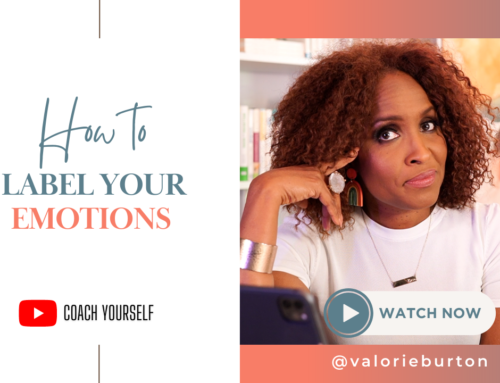Reaching goals isn’t just about knowing what steps to take. It’s also about how you handle discouragement, fear and stumbles on the way to goal. Research shows that the most successful people actually think differently on the path to success – and that mental toughness helps them to be resilient in the face of frustrations and obstacles. Here are ten ways to boost your chances of reaching your goals this year and the questions you can ask to coach yourself along the way.
1. Know your “why.”
Coach yourself: What will this goal give you that you don’t have right now?
Purpose fuels perseverance. Have a strong “why” behind your goal and you are far more likely to stick with it when it becomes difficult.
2. Be super specific.
Coach yourself: In vivid detail, what does success look like, when will it happen and how will you know you’ve achieved it?
The more specific you are, the more obvious your action steps become. Vague goals produce vague results. Be specific.
3. Plan it on your calendar.
Coach yourself: What will I need to put in place in order to support my goal?
Most people set goals, but don’t have a realistic plan to achieve them. Look at your calendar now and block some time (whether 15 minutes for a small goal or a whole day or more for a big goal) to brainstorm how you will achieve the goal and plan your timeline. Identify your potential obstacles and put plans in place to help you avoid them. Identify and put in place the things that will help you reach the goal. Is it a new, healthier grocery shopping list? An automatic withdrawal from your paycheck so you can boost your savings by 25% by the end of the year? Hiring a resume writer to make you stand out from the crowd?
4. Clarify what needs to change.
Coach yourself: What would I need to change in order to support this goal?
Most people underestimate what it will take to reach a goal, and it is the reason most people have totally forgotten the goal by the end of January. The bigger the goal, the bigger the commitment. “I want to work out three time a week” is a good start, but when? What will need to change to make time for this goal?
5. Tell yourself the truth.
Coach yourself: What’s the self-sabotaging habit you most need to conquer in order to reach the goal?
Fill in the blank of this statement, “I hate to admit it, but ….” Be honest about what’s held you back from the goal in the past. Then make the goal about addressing it. So for example, rather than simply, “I’m going to lose weight,” the goal becomes, “I’m going to find healthy ways to cope with my stress/insecurity/anxiety other than eating.”
6. Make it fun.
Coach yourself: What would make the journey to my goal more fun?
Research shows that positive emotion has a host of health and resilience benefits. For example, positive emotion helps you set better goals, see more options to get to the goal and persevere in the face of adversity. So invite a friend to join you, take a class or join a group that’s focused on the goal, and brainstorm ideas for making it fun or creating a game out of it.
7. Give yourself permission to be imperfect.
Coach yourself: How would you feel if you knew your mistakes and imperfections would not keep you from the goal?
Perfectionism is rooted in fear – fear that we’re not good enough, that mistakes are the end of the world, and falling down means never getting back up. If you buy into such fears, you are less likely to ever get started. Give yourself permission to make mistakes and stumble on the way to the goal. Then when it happens, simply ask: What is the lesson being offered to me here? What will I do differently next time? Use your failures and mistakes as learning tools.
8. Pinpoint the milestones and how you’ll celebrate.
Coach yourself: What are the milestones along your timeline and how do you want to celebrate them?
Anticipation is a happiness trigger. It produces positive emotion that keeps you moving forward. Rather than having just one big milestone – the finish line – create multiple milestones along your journey to the goal. Then treat yourself and be sure to share the milestones with people who will celebrate along with you.
9. Fear is inevitable, but it’s not a stop sign.
Coach yourself: What are you afraid of and what will you do if it happens?
The biggest obstacle to creating meaningful goals and taking consistent steps forward is fear. But refuse to stop just because fear rears its head. Instead, question your fear. Ask, “Well, what if that happens? What will I do then?” Push through your fear by being brave enough to face it, imagine it and make a plan to handle it.
10. Create a vision board that reminds you of all of the above – and keep it in front of you.
Coach yourself: When will you create your vision board and where will you put it?
Make your vision visible with a vision board – pictures that help you see yourself reaching your goals and inspire you with a positive mindset. Frame it, hang it on the wall where you’ll see it when you wake up or while you’re getting ready in the mornings, make it your screen saver, or place it on your desk. And make sure it includes reminders you’ll need to be mentally strong when you become discouraged, “Fear is inevitable, but it’s not a stop sign” or “Don’t forget to celebrate the milestones.” Make sure your “why” is front and center, and plenty of pictures that represent the goal, energize you and inspire you to keep moving forward.



